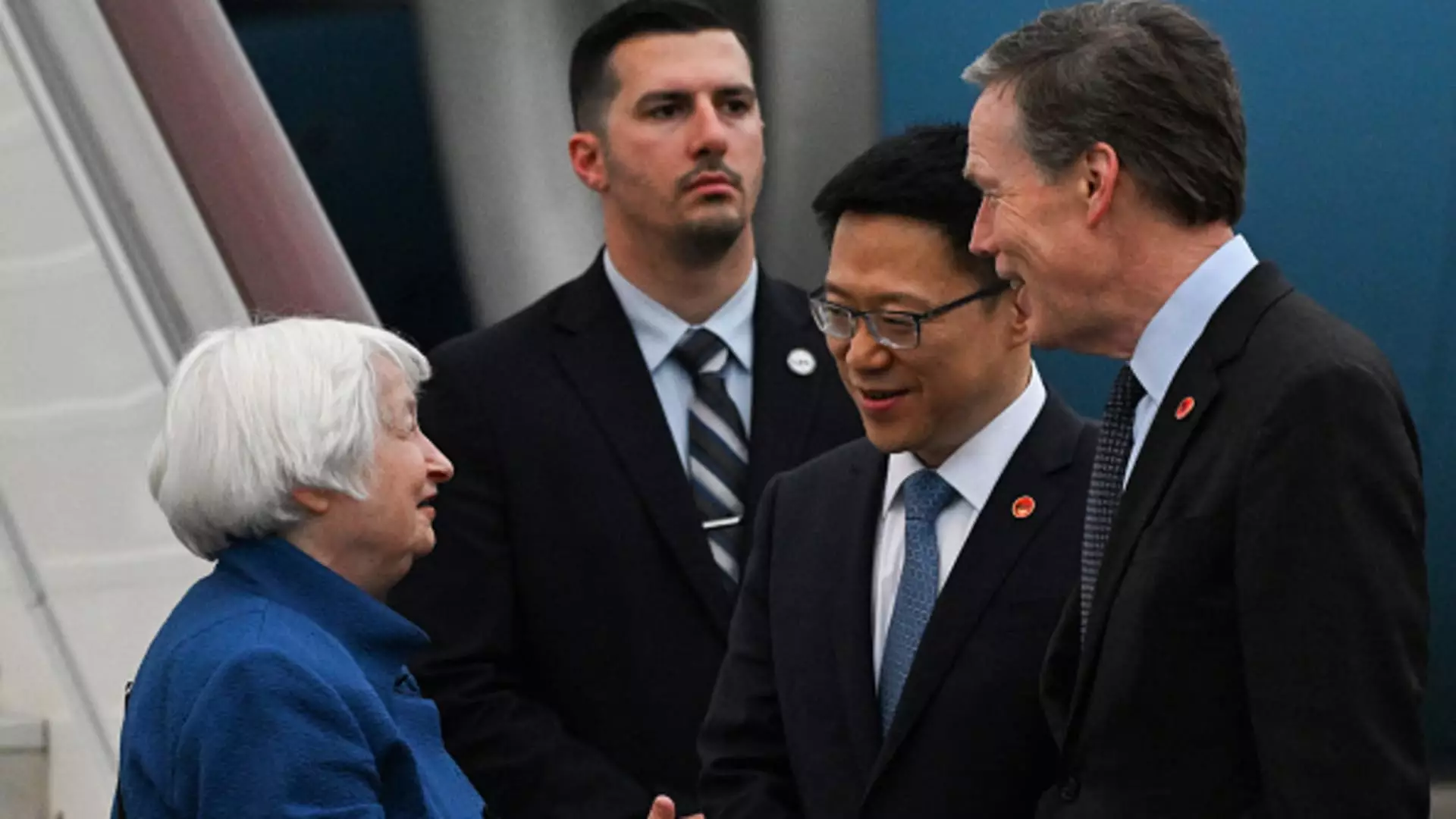As U.S. Treasury Secretary Janet Yellen embarked on her visit to China, the focus was largely on discussions surrounding overcapacity concerns and the encouragement for market-oriented reforms. Yellen’s meetings with key Chinese officials highlighted the importance of a healthy economic relationship that benefits both nations. The issue of China’s industrial overcapacity, which has raised global spillover concerns, was a central point of discussion. The Chinese government’s support for manufacturing has led to a build-up of production capacity that exceeds domestic demand, creating challenges for the global market.
Yellen’s visit to Guangzhou, the capital of Guangdong province, underscored the city’s historical role in driving market-oriented reforms that propelled China’s economic growth. Guangdong, known for its tech companies and startups, is a key contributor to China’s economic success. The province leads in exports by value, showcasing its importance in China’s economic landscape. Yellen recognized Guangzhou’s significance as a hub for technology and manufacturing, emphasizing the city’s role in China’s economic progress.
Despite being the world’s second-largest economy, China has been facing challenges in sustaining its growth trajectory. A crackdown on debt-fueled growth in the property sector and regulatory actions against internet platform companies have contributed to the slowdown in economic expansion. Uncertainty surrounding Beijing’s policies and their impact on consumption and overall growth have dampened business and investor confidence. The need for balanced economic reforms to address these challenges is crucial for China’s future economic stability.
Yellen’s visit to China coincided with efforts by both governments to improve communication amid growing tensions. Recent talks between U.S. President Joe Biden and Chinese President Xi Jinping aimed to address key issues in the bilateral relationship. The establishment of working groups for commerce and trade negotiations signals a willingness to engage in dialogue and find common ground. The upcoming visit by U.S. Secretary of State Antony Blinken underscores the importance of sustained engagement between the two nations.
Nicholas R. Lardy’s assessment of China’s role in global economic growth highlights the country’s significance in driving regional prosperity. As China continues to expand its economic footprint, particularly in Asia, it will play a pivotal role in shaping the future of the global economy. U.S. policymakers need to appreciate China’s growing influence and work towards building mutually beneficial economic and security ties with Asian partners. Underestimating China’s economic impact could undermine efforts to foster cooperation in the region.
China’s economic outlook presents both opportunities and challenges for the country and its global partners. Addressing overcapacity concerns, promoting market-oriented reforms, and enhancing communication between nations are essential steps towards sustainable economic growth. As China navigates the complexities of its economic landscape, collaboration with international partners will be crucial in shaping a prosperous future for the country and the broader global economy.



Leave a Reply